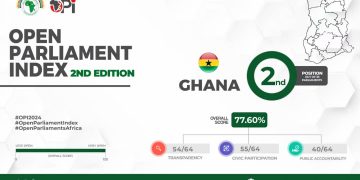Ghana’s Inflation Drops to 12.1% in July 2025: Impact Citizens, Businesses, and the Road Ahead
In a significant economic milestone, Ghana’s inflation rate dropped to 12.1% in July 2025, marking one of the lowest inflation levels in recent years. This improvement comes after a challenging period where inflation peaked above 30% in late 2023 and early 2024, causing widespread hardship for Ghanaian households and businesses. The recent inflation decline reflects coordinated efforts by the government, the Bank of Ghana, and stakeholders across sectors to stabilize prices and restore confidence in the economy. However, understanding the real impact of this development requires examining its implications for everyday citizens, the business community, and the strategies necessary to maintain this progress over the long term.
For many Ghanaians, the sharp rise in inflation over the past two years had led to escalating costs of living, squeezing household budgets and forcing families to make tough choices. The decline to 12.1% inflation offers a breath of fresh air, signaling that the prices of essential goods and services are stabilizing.
- Food Prices: Food constitutes a large portion of household expenditure in Ghana, especially for low-income families. During the height of inflation, the price of staple foods such as rice, maize, and cooking oil soared, with a 25kg bag of maize rising from around GHS 120 in early 2023 to over GHS 200 at the peak. By July 2025, the cost had receded to approximately GHS 160, easing the burden on families who rely heavily on these staples.
- Fuel and Transport: Fuel prices, which influence transport and logistics costs, have also become more manageable. In metropolitan areas like Accra and Kumasi, transportation costs directly affect daily commuting expenses. As inflation eases, consumers have experienced slower increases in fares, allowing more predictable budgeting for daily travel.
- Savings and Purchasing Power: Lower inflation rates help protect the value of savings. During periods of high inflation, the real value of money saved erodes rapidly, discouraging saving behavior. The recent decline boosts consumer confidence, encouraging more Ghanaians to save and invest, laying the foundation for improved financial security.
- Wages and Employment: While wage increases tend to lag behind inflation, the slowing inflation rate reduces the pressure for large wage hikes. This could stabilize employer-employee relations and maintain employment levels, especially in labor-intensive sectors.
Businesses have felt the brunt of volatile inflation rates through fluctuating input costs, pricing challenges, and uncertain demand. The drop to 12.1% inflation helps create a more predictable environment for business planning and investment.
- Manufacturing and Retail: Companies such as Kasapreko, a leading beverage producer, have struggled with raw material price volatility and supply chain disruptions caused by inflation and currency depreciation. The easing of inflation reduces input cost shocks and allows manufacturers to stabilize prices, encouraging consumer spending.
- Banking and Financial Services: The banking sector benefits as inflation moderates, enabling the Bank of Ghana to lower benchmark interest rates gradually. Lower interest rates reduce borrowing costs, enabling small and medium-sized enterprises (SMEs) to access credit more affordably for expansion and innovation. This can lead to job creation and greater economic diversification.
- Investment Climate: Inflation stability enhances Ghana’s attractiveness to both domestic and foreign investors. Investors seek environments where costs and returns are predictable. Sustained low inflation can encourage foreign direct investment (FDI) and stimulate economic growth.
- Small Businesses and Informal Sector: SMEs and informal traders, who form a large part of Ghana’s economy, often operate with narrow profit margins. High inflation had eroded their margins and forced price hikes, reducing demand. Inflation decline improves their ability to plan inventory and price goods competitively.
The improvement in inflation is partly attributable to several factors, including:
- Monetary Policy Tightening: The Bank of Ghana implemented a series of interest rate hikes and tightened money supply to curb excess liquidity that was driving price increases.
- Improved Food Supply: Agricultural interventions and improved weather conditions have increased local food production, easing pressure on prices.
- Stabilizing Exchange Rates: The Ghanaian cedi’s relative stabilization against the US dollar has reduced the pass-through effect of currency depreciation on imported goods prices.
Despite these gains, inflation remains above the Bank of Ghana’s medium-term target range of 6-10%, indicating more work is needed to firmly anchor price stability. To maintain and build on the current inflation gains, Ghana must adopt a multi-pronged approach:
- Maintain Monetary Discipline: The Bank of Ghana should continue prudent monetary policy, balancing inflation control with support for economic growth. This includes managing interest rates carefully to avoid stifling credit growth while keeping inflation expectations anchored.
- Boost Agricultural Productivity and Food Security: Agriculture accounts for a significant share of Ghana’s economy and household consumption. Investing in modern farming techniques, irrigation, mechanization, and post-harvest infrastructure will reduce supply shocks that cause food price volatility.
- Fiscal Responsibility and Public Debt Management: The government must pursue sustainable fiscal policies to avoid excessive borrowing that could fuel inflation. Transparent and efficient public spending is critical to maintaining macroeconomic stability.
- Enhance Infrastructure and Supply Chains: Improving transport, storage, and market infrastructure reduces logistics costs and post-harvest losses, helping keep prices stable.
- Support Local Manufacturing and Import Substitution: Strengthening domestic industries reduces dependence on imports vulnerable to foreign exchange fluctuations, a key driver of inflation.
- Strengthen Regulatory Oversight: Agencies such as the National Media Commission and Consumer Protection authorities should enforce laws against price gouging, misinformation, and unethical practices that can artificially inflate prices or cause panic.
- Promote Financial Inclusion: Encouraging more Ghanaians to save and access credit responsibly helps build economic resilience and cushions households from inflation shocks.
Ghana’s inflation declines to 12.1% in July 2025 marks a positive turning point for the country’s economy. It offers hope for improved living standards, renewed business confidence, and a foundation for sustainable growth. However, this progress remains fragile and must be safeguarded through sound policies, investment in productive sectors, and disciplined governance. The journey toward stable prices and economic prosperity requires collective commitment from government, businesses, and citizens alike to build the resilient Ghana that all aspire to.
Dr. Bernard Tetteh-Dumanya is a distinguished Ghanaian financial economist and consultant with nearly three decades of experience spanning academia, corporate finance, and agribusiness. He has held pivotal roles at institutions such as UBA Ghana, SIC Financial Services, Empretec Ghana, and the Swiss International Finance Group, reflecting his profound understanding of global finance. Renowned for pioneering efforts in risk management, compliance, and corporate strategy, Dr. Tetteh-Dumanya has significantly contributed to Ghana’s financial landscape. His expertise encompasses venture capital, business and financial reengineering, and fundraising, playing a crucial role in the growth and development of numerous entities. Driven by a commitment to capacity development, he has provided consultancy services to a diverse array of local and multinational organizations, including GIZ, AGRA, SNV, DANIDA, and USAID. As the CEO of SGL Royal Kapita, he has introduced innovative investment services targeting Ghana’s agriculture sector, aiming to support farmers and agribusinesses in achieving financial stability and growth. Beyond his professional endeavors, Dr. Tetteh-Dumanya is an influential columnist, offering incisive analyses on Ghana’s economic policies and advocating for strategic financial mechanisms to enhance the nation’s economic sovereignty.
For inquiries, Dr. Tetteh-Dumanya can be reached at: mafioba@yahoo.com








